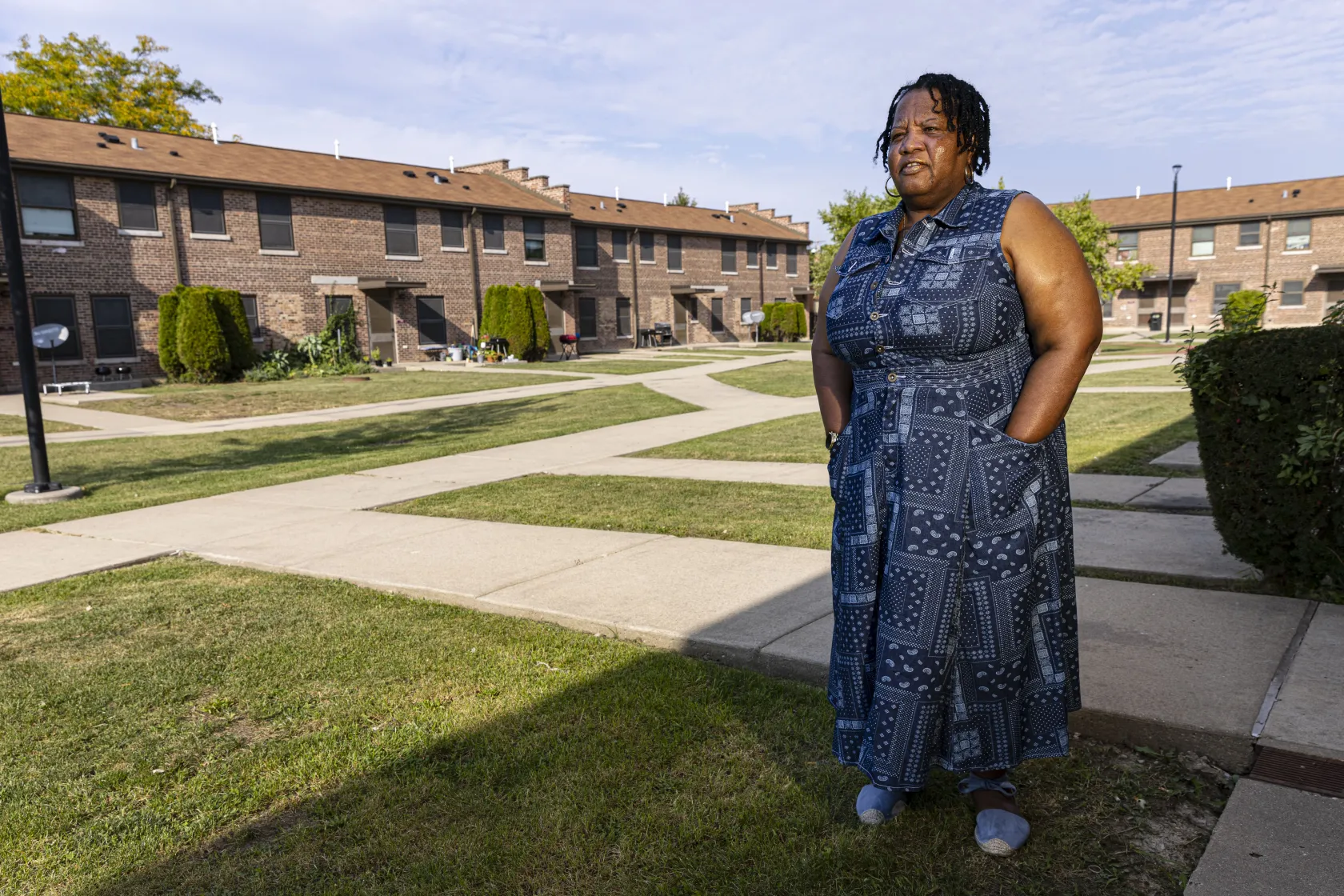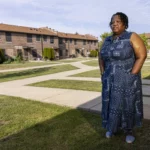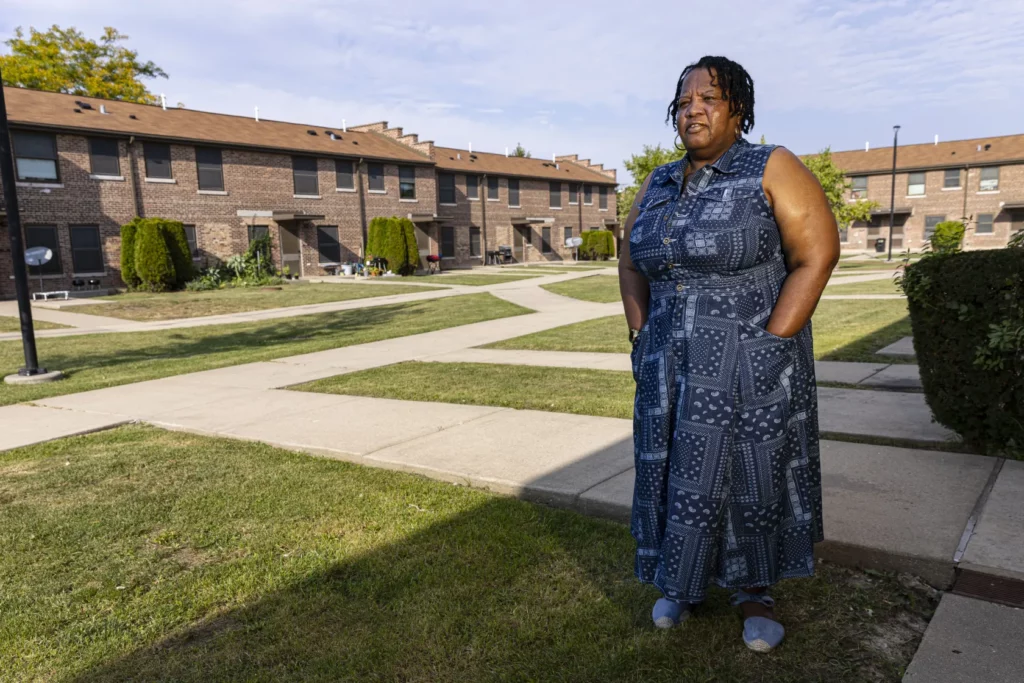Chicago administration fights back after White House, citizens claim environmental racism
By Anthony Vazquez Chicago-Sun-Times South Side activist Cheryl Johnson’s organization People for Community Recovery is a complainant in two civil... The post Chicago administration fights back after White House, citizens claim environmental racism first appeared on Black News & Views.

 By Anthony Vazquez
By Anthony Vazquez Chicago-Sun-Times
South Side activist Cheryl Johnson’s organization People for Community Recovery is a complainant in two civil rights cases against the city of Chicago filed with the U.S. housing officials. She says she wants Mayor Lori Lightfoot to fix longtime discriminatory practices in Chicago,
Amping up her fight with the Biden administration, Mayor Lori Lightfoot is trying to discredit a federal finding that the city has been violating the civil rights of its residents through policies that amount to environmental racism.
Millions of dollars a year in federal funding that helps provide a lifeline for vulnerable Chicagoans — money that comes from the Department of Housing and Urban Development — could dry up if Lightfoot doesn’t back down.
The dispute involving the Democratic mayor and Democratic president’s administration is over the findings in July of a federal civil rights investigation concluding that Chicago zoning, planning and land-use policies HUD accuses city of Chicago of environmental racism by moving polluters to Black, Latino neighborhoods
That investigation was prompted by a complaint filed with HUD in 2020 related to the then-proposed move of General Iron’s automobile-shredding operation from heavily white, wealthy Lincoln Park to a Latino-majority Southeast Side community surrounded by largely Black neighborhoods. It was a plan Lightfoot’s administration helped steer.
The proposed opening of a scrap-metal operation at East 116th Street along the Calumet River led to protests, including a hunger strike, as some South Side residents complained that they can’t take any more pollution in an area where the air quality already is poor. Lori Lightfoot’s showdown with the feds: What’s at stake for people in Chicago
In a letter to HUD responding to its July report, Lightfoot’s law department called the agency’s findings “a fundamentally flawed factual and legal analysis.”
Asking HUD to reconsider its findings, City Hall lawyers told federal officials “the city is confident that it would prevail against enforcement in a court proceeding.”
Any municipality that gets funding from HUD has to agree to follow federal law and to not discriminate against its residents.
City Hall denies that its policies are discriminatory and, in the recent letter to the agency, pointed out that it ultimately Lightfoot rejects Southeast Side metal shredder’s plan to open
“The Lightfoot administration’s commitment to environmental justice is unquestioned,” the letter said.
A HUD spokeswoman says the agency will “seek to resolve these matters as quickly as possible. If a voluntary resolution can’t be reached, HUD may initiate administrative proceedings or refer this matter to the U.S. Department of Justice for enforcement.”
And Lightfoot’s fight with HUD could grow even larger in the coming weeks, when the agency’s investigators are expected to release their findings regarding another civil rights complaint. This one asserts that Chicago City Council members have used so-called aldermanic prerogative to keep affordable housing out of some wards. That investigation was opened two years before the inquiry triggered by the General Iron fight.
Protesters rallied and held a candlelight vigil outside City Hall in early 2021, demanding that the city stop the relocation of General Iron from Lincoln Park to the Southeast Side.
Lightfoot’s tough stance with HUD could prove to be a risky gamble. Most cities facing such civil rights investigations negotiate deals with the housing agency, according to Sara Pratt, a former HUD officials who is now a Washington lawyer specializing in housing discrimination cases.
Pratt points to Los Angeles, which initially pushed back on a housing case involving accessibility for people with disabilities, but then, in 2019, agreed to a major, multi-year commitment to address the problems HUD cited it for. Los Angeles didn’t end up losing its HUD funding because it came to the table with the agency, says Pratt, who isn’t involved in either of the Chicago cases.
She says the Lightfoot administration’s response is unusual.
“That kind of aggressive, negative attitude contrasts with other cities,” Pratt says.
In another case, Joliet had a years-long fight with HUD and the Justice Department before settling in 2013 over accusations of discrimination tied to a proposed condemnation of a low-income housing complex near downtown Joliet. HUD withheld millions in funding, including crucial Community Development Block Grants, but reinstated that money after the city settled.
Joliet Mayor Bob O’DeKirk, who was a city council member at the time of the settlement, says the fight with the feds was a mistake and costly in terms of legal expenses.
“Ultimately, it hurt us,” O’DeKirk says. “And it cost Joliet millions of dollars.”
South Side activist Cheryl Johnson is among those who filed the complaints against Chicago City Hall in both civil rights cases the city now faces. She says the complaints represent longstanding patterns of discriminatory behavior that the mayor didn’t initiate but that need to come to an end.
Lightfoot “inherited all of this when she became mayor of Chicago,” says Johnson, who is executive director of the organization People for Community Recovery. “Chicago has to change its practices.”
She says that, rather than fight, the mayor has an opportunity to help fix the problems of the past. While the complaint over the General Iron facility led HUD to open the 2020 investigation, it also prompted a broader, historical look at discriminatory practices by the city, including how it allows so-called dirty industry to locate in parts of the city and not others, with the biggest concentrations of heavy polluters on the South Side and the West Side.
“It needs to change,” Johnson says. “Government needs to listen to the people.”
Her battles against practices she sees as environmental racism see her carrying on efforts that her mother Hazel Johnson began decades ago. The Altgeld Gardens housing complex where Johnson lives was once surrounded by so many environmental hazards that the area was known to some as the “Toxic Donut.”
The Lightfoot administration’s response to HUD said that the mayor has been trying to address environmental issues in heavily burdened communities and will continue to do so.
In a letter earlier this month, lawyers for the groups that brought the General Iron complaint to HUD — in addition to Johnson’s group, the Southeast Environmental Task Force and another South Side organization — said they welcome the city’s pledges.
But they said previous efforts to get the city to discuss its historical practices were rejected by Lightfoot. They also wrote that Chicago should pass an ordinance mandating that the city consider environmental racism in making decisions regarding city permits and land use.
“The legal framework that resulted in the shredder relocation remain in place, while long promised reforms remain aspirational,” the letter from the organizations said.
The metal shredder’s owner was so confident it was going to get the city permit it needs to open that it went ahead and built its new operation on the Southeast Side. It sued the city in multiple courts for breach of contract and other claims. Construction of General Iron’s new home on Southeast Side moving at full steam ahead
Brett Chase’s reporting on the environment and public health is made possible by a grant from The Chicago Community Trust.

The post Chicago administration fights back after White House, citizens claim environmental racism first appeared on Black News & Views.







